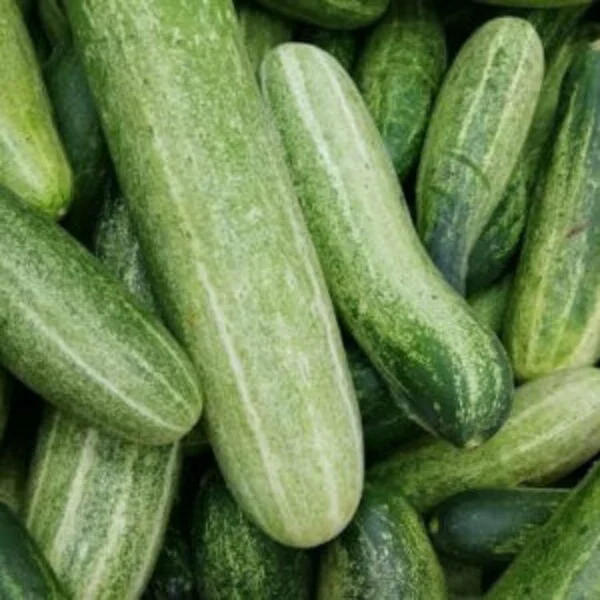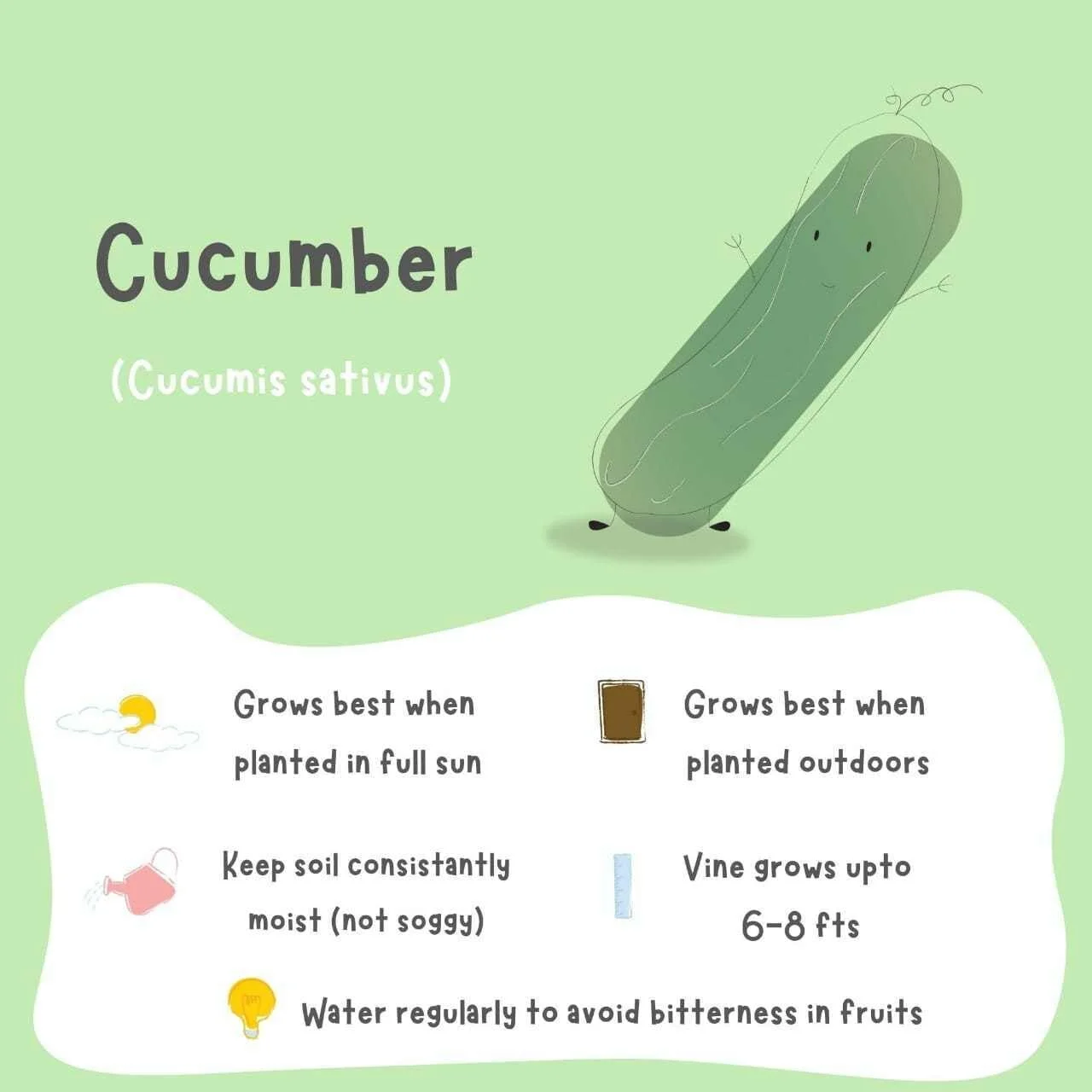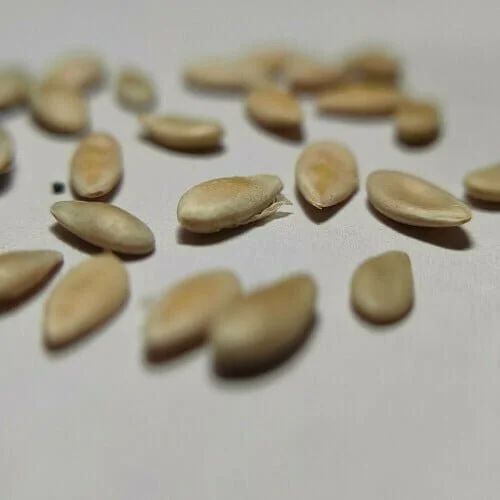Cucumber Seeds (5 Seeds)
₹15.0
Growing the long green seed-filled fruit to add a delight to our salad in our home garden is always exciting. Cucumber has a good amount of water content with lots of antioxidants. Try our Non-GMO Cucumber Seeds (fruits). Also, check out our workshops for more details.
PRODUCT DESCRIPTION
Number of seeds in a packet – 5
PLANT DESCRIPTION
- Difficulty Level – moderate
- Color – light green
- Type – outdoor
- Feed – Vermicompost for nutrients every week, Seaweed once a month for greener leaves, and Epsom salt for better blooming once a month
- Watering – every day
- Sunlight – full sunlight
- Germination Time – 3 – 10 days
- Fruiting Time – 45 – 50 days after sowing
- Suitable Temperature – 75°F – 85°F
- Season – warm season
- Sowing – february – march
- Harvesting – 50 – 70 days
HOW TO GROW CUCUMBER FROM SEEDS
- Soak the seeds for 4 – 6 hours before planting.
- Take a Seedling Tray and fill it with Cocopeat.
- Make ½ inch deep hole and put 1 seed in each hole.
- Fill the hole with Cocopeat and spray with water.
- Water every day.
- Seeds will germinate within a week.
- Full sunlight is needed.
- The time to fruit is 9 weeks.
ALTERNATE METHOD
- Take a Medium Size Pot and add a Potting Mix.
- If planting in the soil add Neem Cake Powder, VermiCompost, and Seaweed.
ALTERNATE NAME
Botanical name: Cucumis sativus
cucumber seed in hindi: kheere ka beej (खीरे का बीज)
cucumber seed in tamil: vellari vitai (வெள்ளரி விதை)
cucumber seed in telugu: dosakaya ginnja (దోసకాయ గింజ)
cucumber seed in kannada: sautekayi bija (ಸೌತೆಕಾಯಿ ಬೀಜ)
cucumber seed in marathi: kakadice bi (काकडीचे बी)
cucumber seed in malayalam: kukkumbar vithu (കുക്കുമ്പർ വിത്ത്)
Other names: Gherkin
You must be logged in to post a review.
Q & A
The sustainability of organic fruit seeds depends on several factors, including the farming practices used, the genetic diversity of the seeds, and the conservation efforts in place. Here are some points to consider:
Farming Practices: Organic farming practices aim to minimize the use of synthetic chemicals and promote environmentally friendly practices. By avoiding the use of synthetic pesticides and fertilizers, organic farmers contribute to the long-term sustainability of the soil and surrounding ecosystems, which can positively impact the quality and viability of fruit seeds.
Genetic Diversity: Maintaining genetic diversity is crucial for the long-term sustainability of any crop, including organic fruits. Organic farmers often prioritize the use of heirloom and open-pollinated varieties, which tend to have greater genetic diversity compared to hybrid or genetically modified varieties. Genetic diversity enhances the resilience of crops, making them more adaptable to environmental changes, pests, and diseases.
Seed Saving and Conservation: Organic farmers and seed savers play an essential role in preserving and conserving seed biodiversity. Saving and replanting seeds from open-pollinated or heirloom varieties helps maintain their genetic diversity over time. Additionally, organizations and initiatives focused on seed conservation, such as seed banks and seed libraries, work towards preserving a wide range of fruit seed varieties for future generations.
Pollinator Support: Bees, butterflies, and other pollinators are crucial for fruit production as they facilitate the transfer of pollen between plants. Organic farming practices, such as avoiding the use of synthetic pesticides, can create a healthier environment for pollinators, contributing to the long-term sustainability of fruit seed production.
Local Adaptation: Organic farming often emphasizes local and regional food systems, which can lead to increased seed diversity and adaptation to specific environmental conditions. By selecting and saving seeds from fruits that perform well in a particular region, organic farmers can contribute to the sustainability of organic fruit seeds adapted to local climates, soils, and pests.
Overall, organic fruit seeds have the potential to be sustainable when combined with environmentally friendly farming practices, conservation efforts, seed saving, and the promotion of genetic diversity. However, it is important to note that sustainable practices may vary among farmers and regions, and it's essential to support organic farmers and initiatives that prioritize the long-term sustainability of fruit seeds.
General Inquiries
There are no inquiries yet.





Reviews
There are no reviews yet.